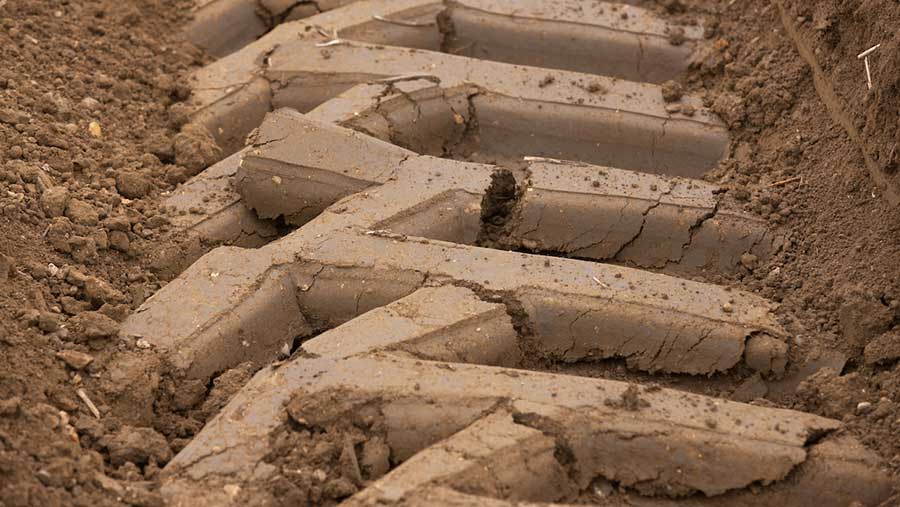Compaction and erosion ‘a serious threat’ to UK farm soils
 © Tim Scrivener
© Tim Scrivener About 6m hectares of farm soils in England and Wales are at risk of compaction or erosion, according to an Environment Agency (EA) study.
Intensive agriculture has caused arable soils to lose up to 60% of their organic carbon, and soil degradation was calculated in 2010 to cost £1.2bn every year.
In the “State of the Environment report (PDF), published on Tuesday (4 June), the EA warns that compaction and the loss of organic carbon are “serious threats to soil health”.
See also: How to identify and encourage worms to improve soils
This affects agricultural production and our resilience to climate change, the report states.
But there is not enough data soil health to fully understand the threat to food production and the environment – and more investment is needed in soil monitoring.
Soil delivers 95% of global food supplies. UK #soil contains carbon roughly equal to 80 years of GHG emissions. It’s under pressure from #climatechange, development & pollution. Here’s @EnvAgency’s report: https://t.co/dJAIAk91GO + my speech: https://t.co/YdlSP18dhP pic.twitter.com/qdmDcj1Oin
— Emma Howard Boyd (@EmmaHowardBoyd) June 3, 2019
Wasting food and growing crops for bioenergy are putting additional pressure on soils, the EA says.
The agency is working on farm assurance schemes with the Waste and Resources Action Programme (Wrap), the NFU, and the Renewable Energy Association to address both the plastic waste produced by agriculture and to reduce plastic contamination in biowaste spread on farmland.
Spreading of some materials to land is poorly controlled and can give rise to contamination. Some 300,000ha are contaminated in the UK. Meanwhile, microplastics are widespread in soil, with unknown consequences.
Looking ahead
Soil has been overlooked in environment policy in recent decades, the EA report says.
But Defra’s 25-year Environment Plan states that England’s “soils must be managed sustainably by 2030” and “steps must be taken towards restoring the UK’s soils”.
A new system of “public money for public goods” will reward farmers for environmental outcomes such as emphasising healthy soils.
There is a huge opportunity if the new Environmental Land Management scheme is properly funded to incentivise farmers by rewarding them for protecting and regenerating soils.
In a speech to a Devon and Cornwall Soils Alliance meeting on Monday (2 June), EA chairwoman Emma Howard Boyd said it was vital that farmers take steps to prevent soil loss from their land.
Ms Boyd outlined practices that cause compaction, runoff and erosion. These include:
- Harvesting of maize and vegetable crops late in the year during wet conditions
- Drilling crops late in the year with poor soil structure
- Outwintering of stock where this causes compaction and runoff
- Continuous growing of vegetables (and daffodils in the South West) on soils with low organic matter that are prone to erosion
- Spreading of slurry and manures during winter where this causes compaction
The UN warned in 2017 that about one-third of the world’s soils have already been degraded and if current rates of degradation continue, all the world’s topsoil could be gone within 60 years.
In the UK, a 2014 study by researchers from the University of Sheffield found that UK farm soils are so depleted, they are only capable of 100 more harvests and dramatic action must be taken to avoid an “agricultural crisis”.
